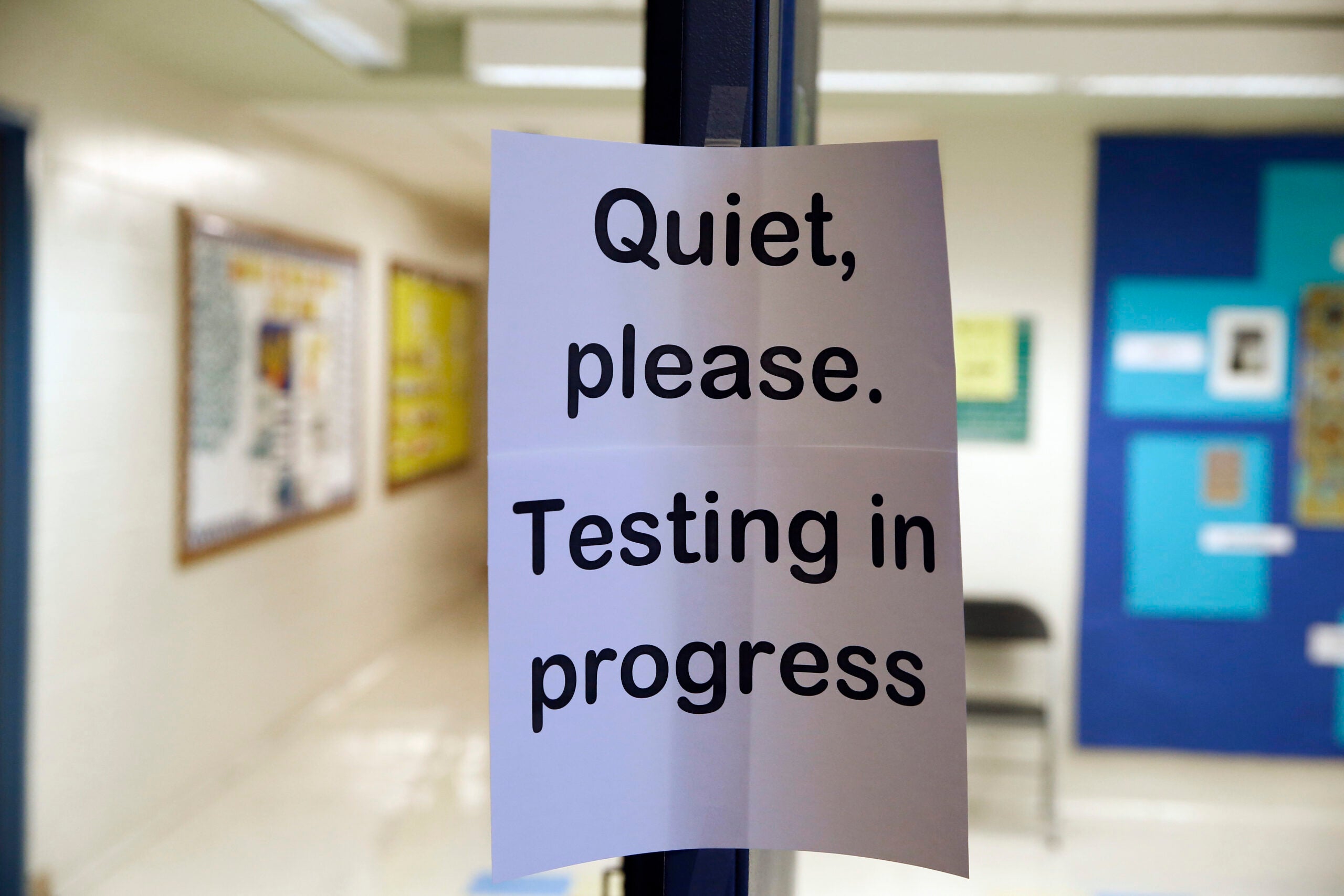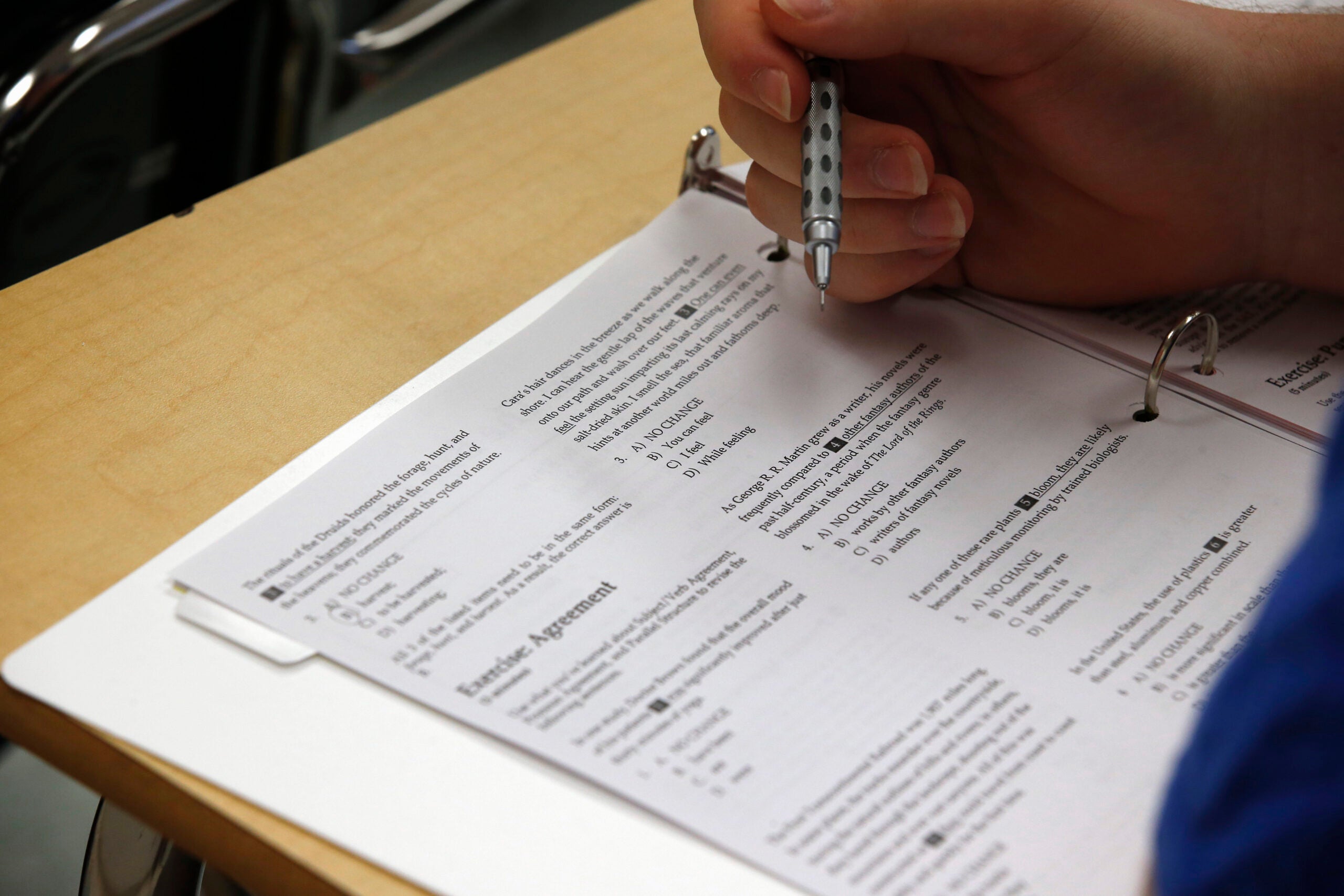Wisconsin elementary school teachers could become licensed without demonstrating they can effectively teach children the science of reading under a plan being considered by lawmakers.
The proposal is on the table just months after the state Legislature passed a sweeping bill attempting to improve reading outcomes by overhauling how children are taught to read, with schools now required to use a science of reading approach.
The new bipartisan plan working its way through the Legislature would exempt teachers from having to pass the Foundations of Reading test, commonly called FORT, before entering the classroom.
Stay informed on the latest news
Sign up for WPR’s email newsletter.
It’s not the first time legislators are revisiting the testing requirement. Legislation was passed in 2019 exempting special education applicants from the FORT exam as long as they could demonstrate to the Department of Public Instruction they have completed a course of study that “satisfies several criteria including competency in phonemic awareness, phonics, fluency, vocabulary, and comprehension.”
The proposed bill, authored by Sen. Mary Felzkowski, R-Irma, and state Rep. Jeff Mursau, R-Crivitz, extends that exception to applicants for all licenses that require the FORT exam.
Felzkowski and Mursau did not respond to requests for comment.
Lawmakers, DPI and the Wisconsin Association of School Boards say the change is necessary to help alleviate the state’s teacher shortage. For years, the FORT test has had dismal results. Only 54 percent of first-time test takers passed for the 2020-21 school year. That’s down from 66 percent in 2014-15.
“Passing the FORT examination can be a costly and time-consuming process, with a relatively high failure rate, especially among teacher license applicants of color and applicants whose first language is not English,” according to the Wisconsin Association of School Boards. “There is also little credible evidence that passing the FORT exam, by itself, improves teacher performance or produces any positive impact on students’ literacy skills or reading achievement.”
But some reading advocates and teachers say the onus should be on colleges and universities to better prepare their education students to teach, rather than throw away the test.
Curtis Kadow is a third grade teacher at Kosciuszko Elementary School in Cudahy. Kadow did not have to take the FORT test — he became a teacher before the test was implemented 11 years ago.
Still, Kadow sees value in the test.
“I believe it’s our only check to make sure that our universities are helping our pre-service teachers understand the science of reading and those foundational skills that they need in order to be successful coming into the workforce,” Kadow said. “I think it’s kind of interesting that our Legislature passed this really big reading bill focused on the science of reading, but now we’re trying to get rid of a test that checks for that.”
The Cudahy School District, which serves a suburb on Milwaukee’s south shore, shifted to the phonics-based science of reading three years ago and test scores show it’s beginning to pay off.
Kadow understands the argument by lawmakers and DPI that low pass rates on the FORT exam are making it more difficult to hire staff, but to him, that means universities should change how they’re teaching.
“If we think about the Forward exam, lots of kids don’t pass that, and we’re not getting rid of it,” he said. “Why? Because it’s a check to make sure that schools are doing what they need to do.”
Wisconsin’s new reading law doesn’t explicitly tell the universities how to teach. But it will prohibit DPI from approving teacher education programs unless they include science-based early literacy instruction and do not incorporate three-cueing — a model that emphasizes that skilled reading should include using meaning and sentence structure cues to read new words.
Wisconsin teachers who do not receive this training will not be eligible for a license beginning July 1, 2026.
National study finds FORT to be one of the best teacher prep tests
The National Council on Teacher Quality recently studied 25 teacher reading licensure tests used by states and found only six exams were strong. One of those was Wisconsin’s FORT test, said Heather Peske, president of the council.
Peske said tests like FORT can tell prospective employers whether teachers have the necessary knowledge and skills to teach reading effectively.
“My question is, how will you ensure that your aspiring teachers have the knowledge and skills aligned with the research on how to effectively teach reading before they enter the classroom?” Peske said.
Peske said if less than half of teachers pass the test, then that means those teachers are not prepared to teach children to read.
“It’s kind of odd timing for the state to be implementing a comprehensive reading bill that is trying to better teach kids to read and better align to the science of reading, and simultaneously introducing bills that would lower the guard rails for teachers to enter the classroom,” Peske said.
New teachers in Wisconsin have been required to pass the FORT exam in order to be licensed since 2014. Wisconsin Act 166 required the test for all new elementary teachers, special education teachers, reading teachers and district reading specialists.
The test was identical to the one being used in Massachusetts, which had been struggling with reading scores, but began seeing improvement with the implementation of FORT.
In its paper supporting the Felzkowski/Mursau bill, DPI wrote in the 11 years since Wisconsin implemented FORT, there have been no marked improvements in state reading scores.
Wisconsin Public Radio, © Copyright 2025, Board of Regents of the University of Wisconsin System and Wisconsin Educational Communications Board.




